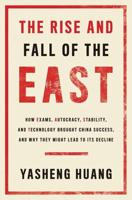Publisher's Synopsis
Bargaining Power examines the balance of power between management and unions, showing why some managements-and some trade unions-are more powerful than others. Bargaining power has long been recognized as central to industrial relations, but no previous work has taken the issue as its central focus. Using both sociological and economic evidence, the author shows how managements and unions approach negotiations and how they use power to achieve their bargaining objectives. In turn he analyses different perspectives on power, negotiations, the industrial relations context, and human resources management. The book concludes with an examination of the changing position of trade unions in Britain in the 1980s, arguing that union bargaining power remains more significant than suggested by the decline in union membership.










